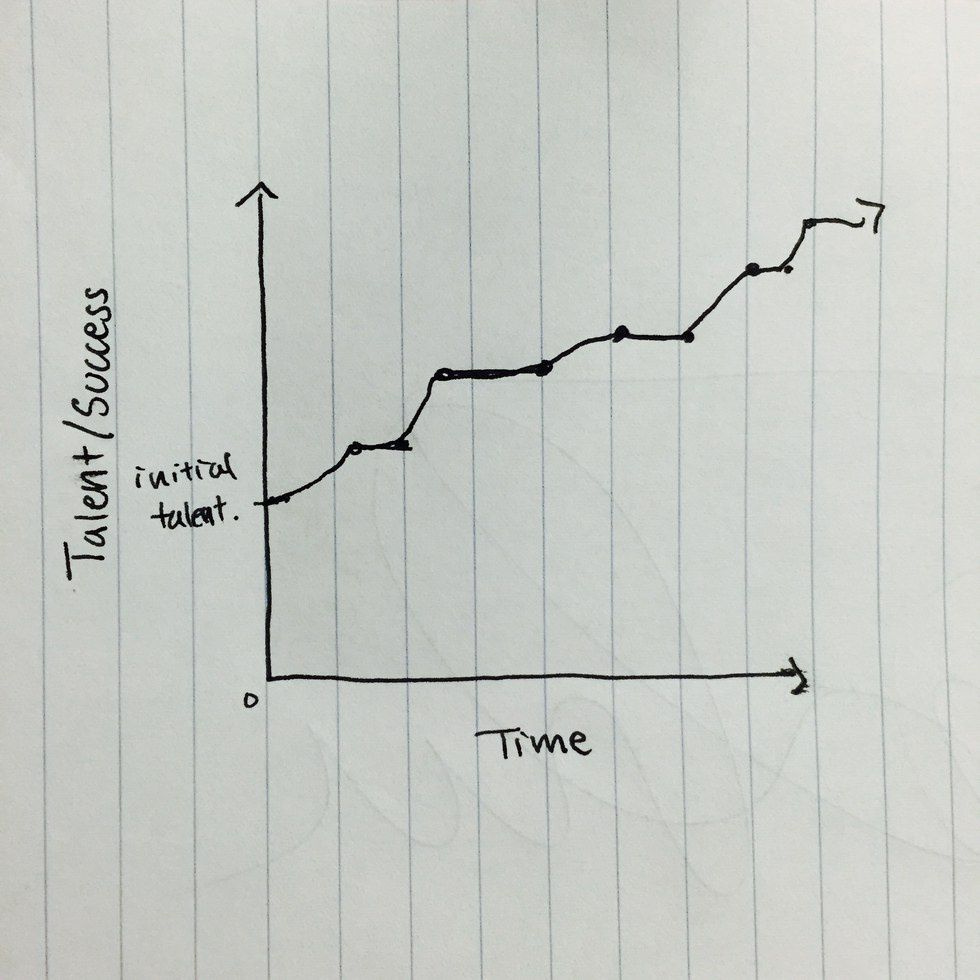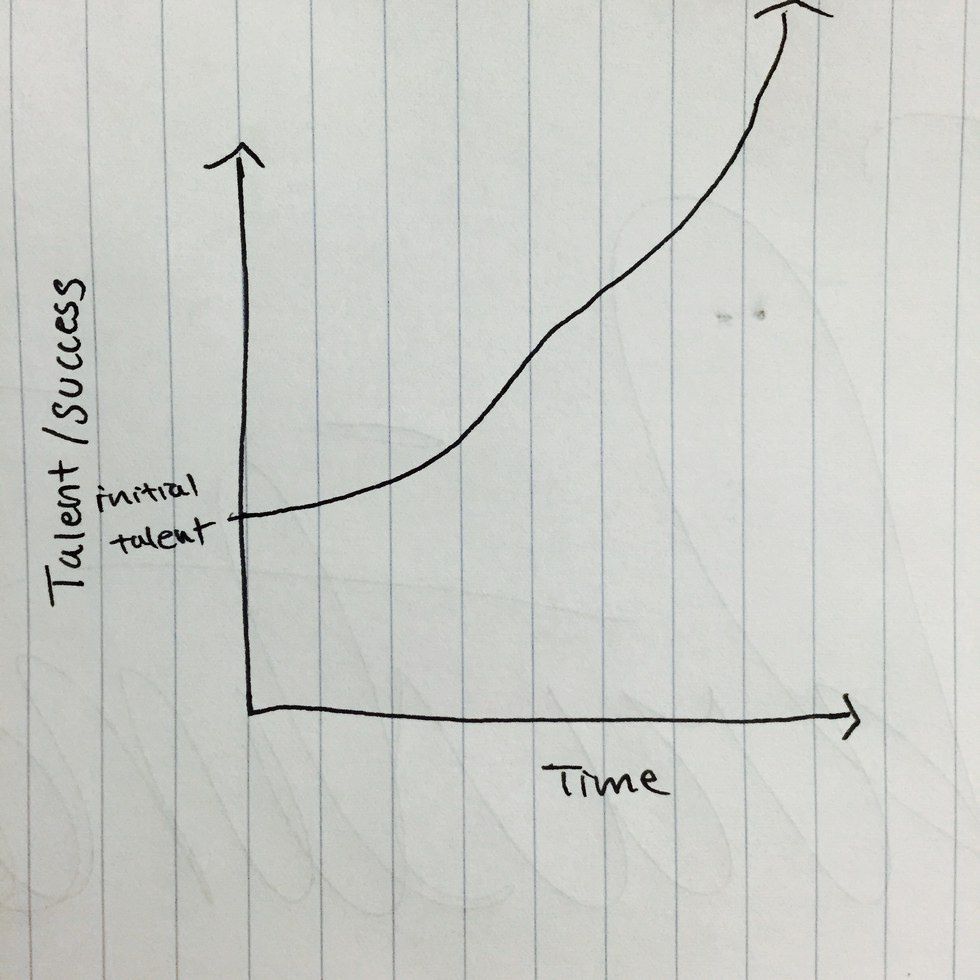I get a lot of different reactions when I say I’m planning on majoring in English and/ or Creative Writing.
Among them:
Disbelief:
“What the hell are you going to do with that?”
Considerate skepticism:
“Oh!” Eyebrows raise. “Wow, that’s…cool. What do you want to do after you graduate?”
The good friend:
“Yass go chase your dreams.”
Indirect condemnation:
“Nice…I like English, but I didn’t think I could find a job with it so…”
Chinese relative classic:
“But don’t you already speak English?”
English teacher:
“I’m so excited for you!” (Yes! One more student we’ve converted!)
Kind (sincere???) wishes:
“Good luck.”
Parental suggestion:
“Don’t worry — you can always switch majors.”
Understanding:
“So like, you want to be a teacher?”
And myself:
“I’m so lost.”
Now for anyone who’s been considering a ‘ludicrous’ or non-STEM/ business/ pre-med path, the above quotes are probably quite common. And to many, every quote except the last, might seem very sensible.
Because in light of today’s job market, the cryptical: “Well, what are you going to do?” is a completely valid question. It’s a socially ingrained doubt, a truth of the divide between the ‘profitable subjects’ and the ‘non-profitable subjects.’ It’s a testament to the very real, and very brutal competition in the big, big world.
But here’s the secret: it doesn’t matter.
At least — not right now, not for deciding on my major. Not at this second, in a sea of thousands of others lost, stumbling college freshmen, trying to make sense of the world. Not at this second, in a dazzling nightmarish wonderland of learning. It doesn’t matter because whatever I am studying, I am actively chasing. College is about learning (one point for gross cliche) and learning is exploration (and imitation, and conditioning, and all the other specifics my psychology textbook cites it as but I’m too lazy to delve into).
So the concern here is not: “What will you do?” After all, nobody said we had to have a concrete plan immediately. Even adults admit that major often times has nothing to do with career. We’re all here just to learn.
Instead, the real concern is: How will you succeed?
Or rather: how do you see yourself succeeding? (Aka are you going down a stable path, or are you a crazy artistic genius?)
And so far, I’ve noticed that success is not too different from simply being active. And if you want to be active, having a passion is probably your best bet, because passion makes you active in a way that negative pressures will never be able to. For knowing that you should do something will never incite the power of knowing that you love something. The former forces you to meet external requirements; the latter allows you to set your own.
Thus the concept of passion itself is active.
Here is an example in my own life: by the end of high school I’d been to my English teachers' office more times than I could count, and to most other subjects less than five.
Of course, some might say: “Not liking something doesn’t give you an excuse to not be active.” And they’re right to some extent — I could’ve forced myself to visit all of my teachers. But that’s not really the point. Because even outside of class, the situation was the same: for my other subjects, I had to be in a ‘learning mode.’ But when it came to storytelling, my learning mode never turned off — searching up words, rereading Harry Potter, and writing were all things I did instinctively. For fun. For pure knowledge. It was an innate attitude. An attitude unique to what I loved.
And to relate this back to success, let’s pretend success is a graph:
The y-intercept: Your initial talent
The slope: Your learning curve
X: Time
Y: Your success / talent
Success based on external, negative motivators (I have to, if I don’t…)might look something like this:
And success based on internal motivators (I want to, if I can…) might look like this:
See the difference? One curve is fueled in intervals, by deadlines and expectations. But the other curve is constant — it’s constantly increasing and it’s slope is constantly increasing. This is what an innate learning curve looks like. This is what passion looks like. And if you measure success by how fulfilling and how talented you can be, then the passion line wins. Now, if it were money, this might a different matter.
Though again with the personal preferences.
For me, money doesn’t equate to success. Success is something else — a conglomeration of personal values and standards. And usually if you’re successful (or talented, since success has different connotations) enough, money will come regardless (with a range of course). This idea along with the fact that there are a whole variety of jobs related to language and the arts (translation, editing, writing and managing articles like these, jobs not yet created) is the logical basis for why I choose to study what I do. I believe that I can be the most successful me by doing what I love (again the learning curve).
It’s about what makes my heart beat faster.
And this isn’t me telling everyone to pick up their favorite hobby and make it a career. No — others may have a lifestyle, a thing, a multitude of hobbies, that makes their heart beat faster, something that they can maintain whilst pursuing a practical career.
This is my small attempt to defy the monotonous mundane.
Now am I sure of my career path? No certainly not. I doubt many college freshmen are. But the important thing is that I’m sure that I’m alive. And if my passion ends up changing in the future, that’s fine too, as long as my heart keeps beating, as long as I can keep striving for the best version of myself.
For I know the plans I have for you,” declares the Lord, “plans to prosper you and not to harm you, plans to give you hope and a future.” - Jeremiah 29:11
Besides, since God has it all planned out, why even try to predict the future?
Best,
The Insane English Major





















